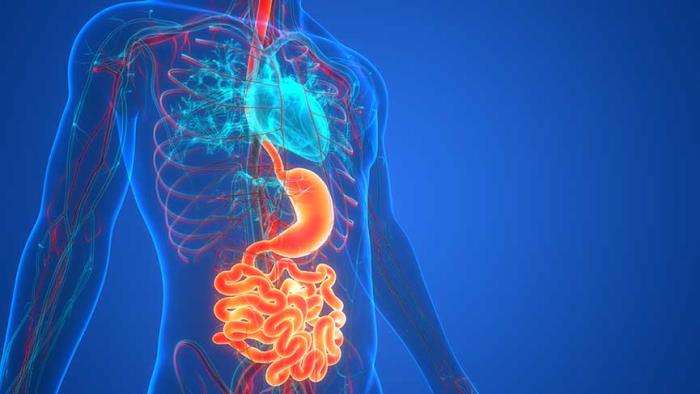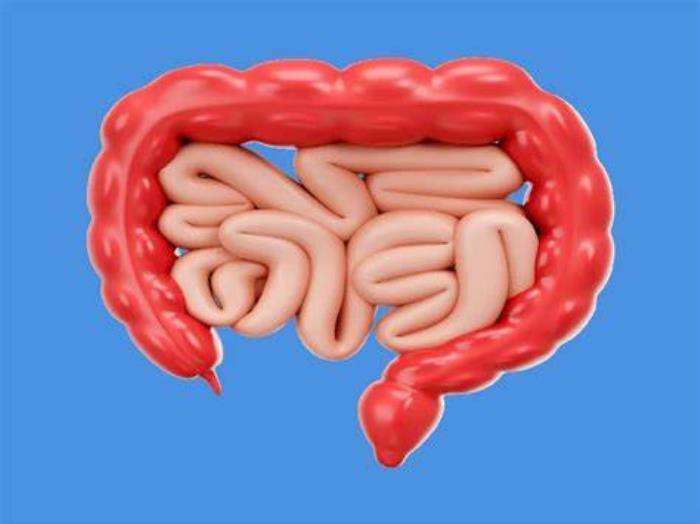Intestinal failure occurs when the intestines are unable to digest food and absorb essential nutrients, fluids, and electrolytes adequately to sustain life. This condition can be caused by diseases such as short bowel syndrome, Crohn's disease, or severe motility disorders, as well as trauma, surgical resections, or congenital abnormalities.
Medical disclaimer: This content is for general awareness and does not replace a doctor’s consultation. For diagnosis or treatment decisions, consult a qualified specialist.
What Is an Intestine Transplant?
An intestine transplant is a surgical procedure to replace a diseased or damaged small intestine with a healthy one from a donor. It is typically performed when intestinal failure is irreversible, and other treatments like Total Parenteral Nutrition (TPN) have failed or caused life-threatening complications.
Common Signs of Severe Intestinal Dysfunction
Signs of severe intestinal dysfunction include chronic diarrhea, severe malnutrition, dehydration, electrolyte imbalances, and dependence on intravenous nutrition. Patients may also experience abdominal pain, bloating, and difficulty gaining or maintaining weight.

When Is Intestinal Failure Considered Irreversible?
Intestinal failure is considered irreversible when the intestines lose sufficient functional capacity to absorb nutrients and fluids, even with medical interventions. This can occur due to extensive surgical removal, severe chronic diseases, or permanent damage to intestinal motility or structure.
The Role of Total Parenteral Nutrition (TPN) in Managing Intestinal Failure
Total Parenteral Nutrition (TPN) is a life-sustaining therapy for intestinal failure, providing essential nutrients, fluids, and electrolytes intravenously when the intestines cannot absorb them. While TPN can effectively manage intestinal failure temporarily or long-term, it does not restore normal intestinal function.
Complications of Long-Term TPN That May Lead to Intestine Transplant
Long-term TPN can lead to serious complications such as liver disease, infections from catheter use, blood clots, and nutrient deficiencies. These complications, especially when severe, may necessitate an intestine transplant to improve the patient's quality of life and prevent life-threatening risks.
Chronic Conditions Leading to Intestinal Transplantation
Chronic conditions that may lead to intestinal transplantation include short bowel syndrome (caused by extensive surgical removal of the intestine), motility disorders, radiation enteritis, and chronic bowel obstruction. These conditions often result in irreversible intestinal failure requiring advanced surgical intervention.
Short Bowel Syndrome and the Need for Intestine Transplant
Short bowel syndrome (SBS) is a condition that arises when a significant portion of the small intestine is missing or non-functional, leading to malabsorption of nutrients and fluids. While many SBS patients can be managed with dietary adjustments and total parenteral nutrition (TPN), severe cases may require an intestine transplant. Transplantation becomes necessary when TPN fails, causes life-threatening complications, or cannot sustain the patient’s nutritional needs.
Managing Motility Disorders Through Intestine Transplantation
Severe motility disorders, such as chronic intestinal pseudo-obstruction (CIPO), can lead to intestinal failure when the digestive tract cannot properly transport food and fluids. Intestine transplantation may be considered for patients whose motility disorders are unresponsive to medical treatments and lead to life-threatening complications, such as severe malnutrition or frequent infections associated with long-term TPN.
Severe Crohn’s Disease: When Is an Intestine Transplant Required?
Intestine transplant is rarely needed for Crohn’s disease but may be considered in severe cases where the disease causes extensive bowel damage or repeated surgical resections lead to intestinal failure. Patients with Crohn’s disease who develop short bowel syndrome or experience complications from TPN are potential candidates for transplantation.
Intestinal Pseudo-Obstruction and Its Role in Transplant Candidacy
Intestinal pseudo-obstruction mimics the symptoms of a physical blockage but results from severe motility issues. Chronic cases that do not respond to medications and lead to intestinal failure may necessitate an intestine transplant. Careful evaluation is essential to determine transplant candidacy and address underlying motility problems.

The Impact of Intestinal Malrotation and Ischemia
Intestinal malrotation and ischemia are serious conditions that can compromise blood flow to the intestines, causing tissue death and leading to intestinal failure. When surgical intervention cannot restore functionality, or if complications arise, an intestine transplant may be required to save the patient’s life and restore normal digestive processes.
Gastrointestinal Tumors and Their Link to Intestine Transplant Needs
Rarely, gastrointestinal tumors can necessitate an intestine transplant, especially when surgical removal of the tumor leads to significant bowel loss or compromises intestinal function. In such cases, transplantation offers a viable option for restoring digestive and nutritional health.
Diagnosing and Managing Intestinal Atresia
Intestinal atresia, a congenital condition where a portion of the intestine is absent or blocked, can lead to intestinal failure if not properly managed. For severe cases, especially in pediatric patients, an intestine transplant may be the best option to address long-term nutritional and digestive needs.
The Role of Congenital Conditions in Intestine Transplant Requirements
Congenital conditions such as Hirschsprung’s disease, intestinal atresia, and gastroschisis can lead to severe complications requiring intestine transplantation. Advances in surgical techniques and early diagnosis have improved the outcomes for pediatric patients with congenital intestinal disorders.
Chronic Rejection of a Previous Transplant: Signs to Watch For
Chronic rejection of a previous intestine transplant can manifest as malabsorption, persistent diarrhea, or weight loss. Timely intervention, such as adjusting immunosuppressive therapy or considering a second transplant, is critical for managing rejection and preserving the patient’s health.
Pediatric Conditions That May Lead to Intestine Transplant
Pediatric conditions like necrotizing enterocolitis (NEC), severe gastroschisis, and volvulus are common reasons for intestine transplantation in children. Early intervention and comprehensive care are essential for ensuring successful transplant outcomes in young patients.
The Role of Multivisceral Transplantation in Complex Cases
Multivisceral transplantation, which includes the intestine along with other organs such as the liver, pancreas, and stomach, is considered for patients with complex conditions involving multiple organ systems. This approach is particularly beneficial for patients with extensive abdominal tumors, chronic intestinal failure, or severe adhesions.
Advances in Diagnostics for Intestine Transplant Evaluation
Advances in imaging techniques, such as high-resolution CT and MRI scans, and biomarkers have improved the evaluation process for intestine transplantation. These innovations allow for more accurate diagnosis, better patient selection, and tailored pre-transplant care.
Managing Infections After Intestine Transplant Surgery
Learn how to manage infections after intestine transplant surgery. This blog discusses the importance of monitoring and preventing infections, which are common post-transplant complications, and strategies for effective management to ensure a successful recovery.
The Impact of Intestine Transplant on Digestive Health
Discover the impact of intestine transplant on digestive health. This article explores how intestine transplants restore normal digestive function, improving nutrient absorption and overall health in patients with severe gastrointestinal disorders.
Preparing for an Intestine Transplant: What Patients Need to Know
Patients preparing for an intestine transplant should focus on comprehensive medical evaluations, optimizing nutritional status, and addressing any infections. Education about the transplant process, potential risks, and post-operative care is crucial for improving outcomes and ensuring a smooth recovery.
Best Intestine Transplant in India
The Best Intestine Transplant in India offers a vital treatment option for patients with severe intestinal failure, combining advanced surgical techniques and comprehensive post-transplant care.
Best Intestine Transplant Hospitals in India
The Best Intestine Transplant Hospitals in India are equipped with cutting-edge technology and multidisciplinary teams, ensuring seamless patient care and successful transplant outcomes.
Intestine Transplant Cost in India
The Intestine Transplant Cost in India is competitively priced, providing access to world-class treatment with transparent pricing and comprehensive care packages.
Best Intestine Transplant Surgeons in India
The Best Intestine Transplant Surgeons in India are highly skilled and experienced, ensuring precise surgical interventions and personalized patient care for optimal recovery and long-term success.
FAQ Section
1. What are the main causes of intestinal failure?
Intestinal failure can result from conditions such as short bowel syndrome, motility disorders, congenital defects, chronic inflammation (e.g., Crohn’s disease), or complications from surgery or trauma.
2. How do I know if I need an intestine transplant?
An intestine transplant is considered when intestinal failure cannot be managed with TPN or when TPN causes life-threatening complications like liver failure, frequent infections, or severe dehydration.
3. What is short bowel syndrome, and how does it relate to transplantation?
Short bowel syndrome occurs when a significant portion of the small intestine is missing or non-functional, leading to malabsorption. In severe cases, where TPN is insufficient or causes complications, an intestine transplant may be necessary.
4. Can motility disorders be treated with an intestine transplant?
Yes, severe motility disorders that lead to intestinal failure and cannot be managed with medications may require an intestine transplant to restore proper digestive function.
5. What are the risks of long-term TPN, and how do they affect transplant candidacy?
Long-term TPN can lead to complications such as liver damage, bloodstream infections, and nutritional deficiencies. These risks often make patients candidates for intestine transplantation when TPN is no longer a safe or effective option.
Telemedicine has become an essential tool in the follow-up care of intestine transplant patients. It allows for remote consultations, monitoring, and management of the patient's health, reducing the need for frequent hospital visits. Telemedicine facilitates early detection of complications, ensures medication adherence, and provides convenient access to healthcare providers. This approach improves patient outcomes, enhances the quality of life, and offers a cost-effective solution for continuous care. The Role of Telemedicine in Intestine Transplant Follow-Up Care
Small bowel transplants and multivisceral transplants are vital surgical procedures for treating severe gastrointestinal conditions. Small bowel transplants involve replacing a diseased segment of the small intestine with a healthy donor section, typically for patients with irreversible intestinal failure like short bowel syndrome. Multivisceral transplants, however, are more complex and involve replacing multiple organs within the gastrointestinal tract, such as the small intestine, liver, pancreas, stomach, and sometimes kidneys, for patients with multiple organ failure or severe congenital bowel issues. Comparing Small Bowel Transplants and Multivisceral Transplants
Updated for 2025 – Discover the best hospitals in India for intestine transplant procedures, including top choices, advanced techniques, and cost-effective options. Intestine Transplant Cost in India